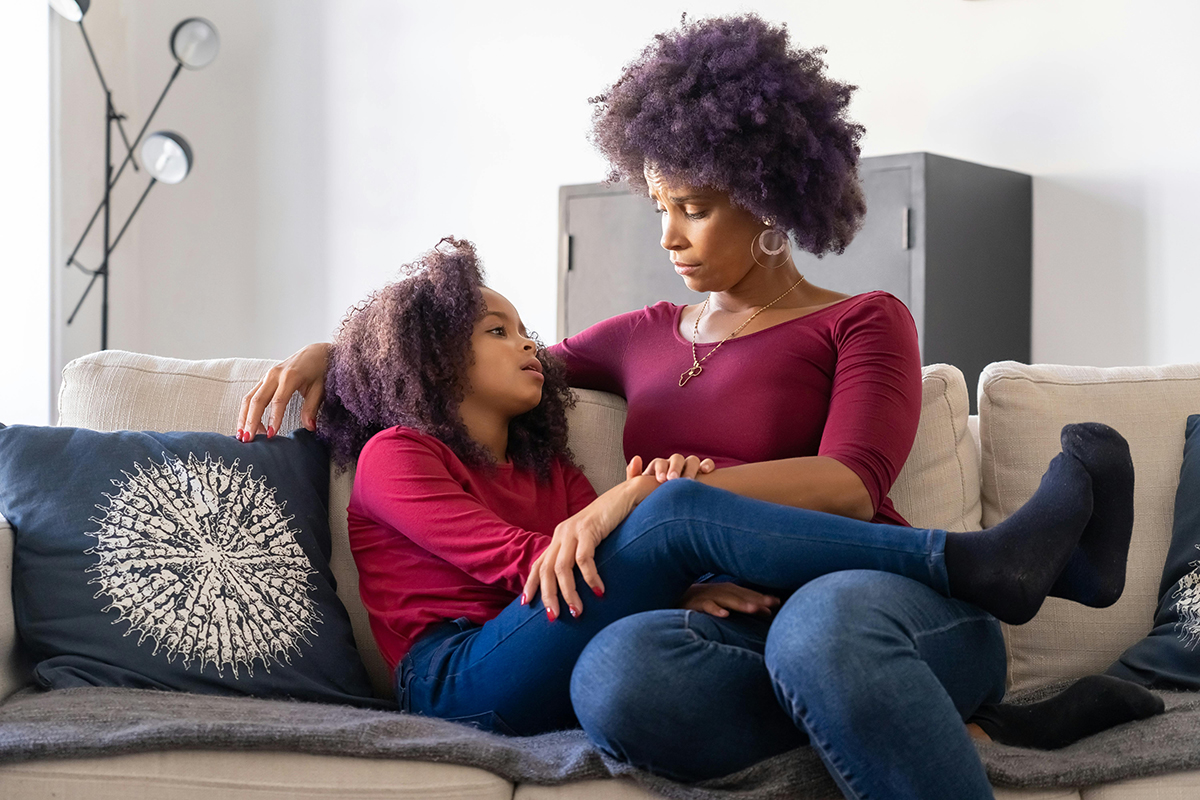Published October 6, 2025
One of the greatest joys of parenthood is explaining how different things work to your kids—and one of the greatest difficulties of parenthood can be that same thing. For example, how do you talk to your child about going through puberty, or about grieving when a loved one dies? Fortunately, you don’t have to tackle these conversations alone. We’re creating a series of articles titled “How to Talk to Kids About Difficult Subjects” where we’ll share tips on how to approach these conversations with your child.
To kick the series off, we’re diving into what might be the most awkward time in any child’s life—puberty.
Kids may start learning about puberty—the period in a person’s life where their body goes through physical, hormonal, and emotional changes to become capable of sexual reproduction—earlier than you think. Movies, TV shows, and the internet all have examples of sex and adult relationships, and might cause your child to have questions about what actually happens when their bodies start to change. That’s where you as a trusted adult in their life can step in and help.
Start the Conversation Early
One of the best tips for making the puberty conversation less awkward for you and your child is to start talking about puberty before their body starts changing.
Girls typically start puberty between the ages of 8 and 14, while boys tend to start around age 10 or 11, but everyone’s body is different—some kids start puberty earlier while others start later. Fortunately, though, kids might start asking questions about their bodies and body parts long before puberty starts, even when they’re toddlers. You can use those moments of natural curiosity to introduce them to the different parts of their bodies—from the more neutral body parts (like fingers and toes) to the parts we consider “private,” like the penis and vagina. Toilet training can be another great time to organically talk about these “private” parts and how to take care of them.
Starting the conversation early on like this not only helps kids become more comfortable identifying and talking about the different parts of their bodies, but it also turns the “puberty talk” into an ongoing conversation as their bodies grow and change over time.
Be Open, Honest, and Reassuring
Puberty might be an awkward time, but treating it as an awkward conversation can make kids feel less comfortable asking you questions about what they’re going through. Give your child the chance to talk and ask questions and then answer them honestly and openly. This will help establish you as a safe and trusted source of information—otherwise, your child might look for answers from inaccurate sources, like the internet or TV.
Using correct anatomical terms when talking about puberty is a great way to help your child feel less awkward about and more at ease with their body, especially as things change. Making sure kids learn how puberty affects all bodies (not girls just learning about girls’ bodies or boys just learning about boys’ bodies) also helps them understand that puberty is a natural process that everyone goes through.
Physical and hormonal changes can cause unfamiliar symptoms for kids—dealing with acne, periods, cracking voices, and developing breasts can feel uncomfortable and potentially isolating. Reassuring your child that these changes are natural and that it’s a process that everyone goes through (that even you as their parent went through!) can help ease those feelings.
Learn Together
Sometimes, learning about a difficult topic together with your child can make it easier to talk about. Reading books on puberty together or finding other reliable media sources about puberty can give you an easy way to start a conversation. Ask your child their thoughts on a specific chapter or topic, or see if they have any lingering questions after reading. By engaging with your child—even if you’re not giving them the information directly—you’re showing that they can come to you with any questions they have, no matter how sensitive the questions may seem.
In addition, refreshing your own memory of all the changes that happen during puberty can be helpful, since it may have been a while since you went through it yourself! This way, you’ll be better prepared to answer your child’s questions and to empathize with what they’re going through.
Keep the Conversation Going
Rather than have a “one and done” conversation about puberty, make it an ongoing conversation. After all, puberty doesn’t happen in one night—it’s a process that takes several years. So it’s only natural that your child might have more questions as they go through the process and experience new changes. If your child brings up a question, make the time to answer and let them know that you’ll always make time to talk with them.
You can also encourage your child to talk to their doctor during their annual visit about the changes they’re experiencing. Medical providers can be another great, trusted source of information and reassurance for your child about what to expect during puberty.
It’s an Awkward Time (for Everyone), and That’s Okay
Puberty is always going to be an uncomfortable time, so give your child (and yourself) some support and grace as you navigate this period of change together. Know that you don’t have to tackle this conversation alone and that, no matter how awkward it might feel initially, your child will appreciate you being there for them during this time in their life.
For additional, trusted resources on puberty, check out this website by the American Academy of Pediatrics, which has articles that cover every part of the puberty process.
Tags: parenting tips, puberty, talking about puberty